SPPA conference 2018

On 28th September 2018, SPPA hosted its second annual conference – this time in Edinburgh, Scotland on the theme of ‘Growing up, growing old and staying well: A Social Pedagogical Approach’. The conference was chaired and introduced by Kate Skinner, Social Work Practitioner and former Chair of Camphill (2006 – 2014). Kate had welcomed the participants and introduced what Social Pedagogy as a practice means.
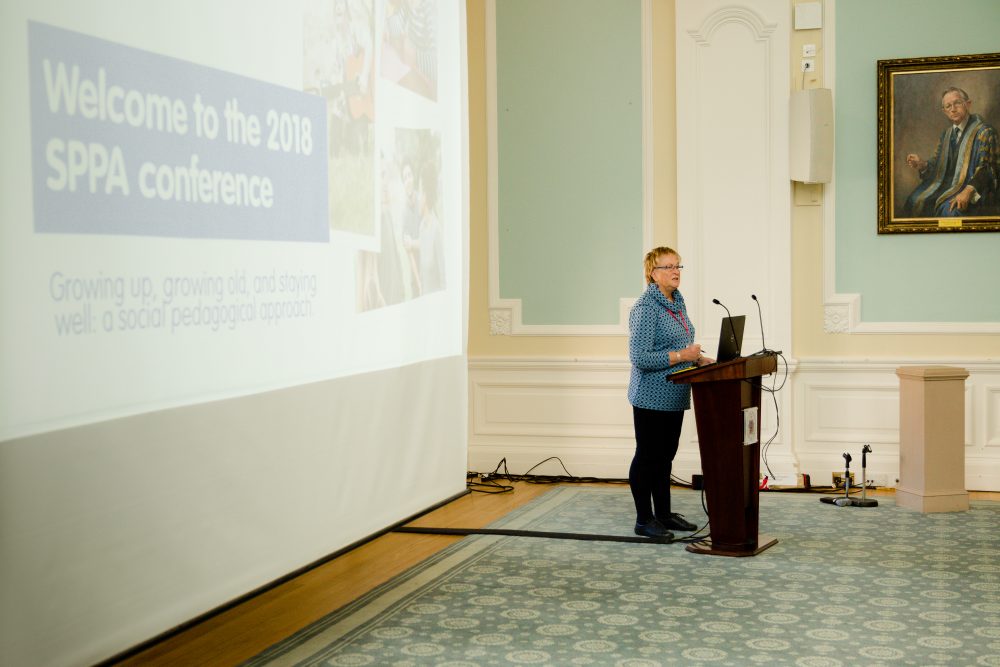
“Social Pedagogy as a discipline, a theoretical approach and most importantly, a practice, has been gaining grond over the last ten years in Scotland. It has been shown to have great benefit for many groups and individuals.
It is a tradition that is sensitive, warm and practical, giving service users, carers practitioners and their managers in a whole range of services – and across the life-course – positive, constructive and hopeful way of being in the world that brings hope to their work. Not to mention better outcomes.”
– Kate Skinner, Social Work Practitioner

James Mitchell, Professor of Public Policy at University of Edinburgh, gave the SPPA conference keynote address. He argued that reforming public services must confront so called ‘wicked problems’. While the Christie Report advocated important principles around citizen involvement in the design of services, partnership working across professions and services, spending wisely to avoid negative outcomes and organising efficiently to reduce duplication, there are clear financial, institutional and cultural barriers to achieving the desired results. Mitchell outlined the fiscal challenge that includes rising demand from changing population demographics, the persistence of professionals and services working in silos instead of collaborating, and the obsession with measurement that sometimes obscures the actual goal of policy. All these impede policy implementation, however well-intentioned. Mitchell used the analogy of standing in front of a tank when necessary to stand up for values that one believes in. He argued for a re-humanising of the state with a broad vision of what is desired. His message had a strong resonance with developing social pedagogy as a values based practice in the UK.
View Professor James Mitchell’s presentation here
The morning and afternoon was then split into 3 parallel workshops on:
Morning:
- Building and Sustaining relationships using a social pedagogic model, facilitated by Amaka Williams and Laverne Cole (St Christopher’s Fellowship)
- Social Pedagogy and the Camphill approach in adult communities, facilitated by Andrew Plant, Martin Alfred and Sandra Sabiston (Camphill)
- How can non-violent communication support our work as Social Pedagogues across the life course? Facilitated by Laurence Alfred (Former Executive Director at Camphill)
Afternoon:
- Social Pedagogy within the Family Learning Intervention Programme (FLIP) at Hackney Council, facilitated by Robert Koglek (Hackney Council)
- Social Pedagogic approaches to working with Older People, facilitated by Prof, Pat Petrie (UCL IOE) and Thure Johansen (Treehouse Project)
- The ‘How’ versus the ‘What’ we do in social pedagogic settings, facilitated by Joerg Schlueter and Mathias Loureiro-Prati (Social Pedagogues)
- ‘The Washing Up’ – exploring the mundane, creatively, facilitated by Kate McCoy and Nou Ra
(See drop down for summaries of workshops.)

Before the conference came to a close, there was an Interactive Panel with a Q&A session towards the end of the day with Mark Smith, Kate Skinner, Prof. Pat Petrie, Robert Koglek and Robyn Kemp, responding to key questions from the day.
We are also delighted to announce that Bianka Lang, Social Worker of the Year and Team Manager at Essex County Council has been appointed a Patron of SPPA.

“I am very honoured to take on the role of Patron for SPPA and I believe that the values and thinking seen within the relationship and strength based approach in social pedagogic work are crucial in social work. Social work and Social Pedagogy should go hand in hand; I often talk to my team members about social pedagogical tools and practice that can be used when undertaking direct work with service users across the life course and I use tools such as the 4 F’s or the 3 P’s within supervision and case discussions.
I believe social pedagogy will play a vital role in the future of social work in the UK. I am very appreciative to take on the role of Patron for SPPA and will support the promotion of SPPA and social pedagogy at different events and conferences.”
– Bianka Lang
We look forward to working with Bianka and would like to thank for her patronage and support in helping promote SPPA.
Professor Claire Cameron (CEO, SPPA) had also announced that next year’s SPPA conference will be taking place in Manchester. The venue will be at Friends Meeting House, 6 Mount St, Manchester M2 5NS on 4th October 2019.
Details of AGM will follow.
| 'The Washing Up' - Exploring the Mundane, Creatively |
|
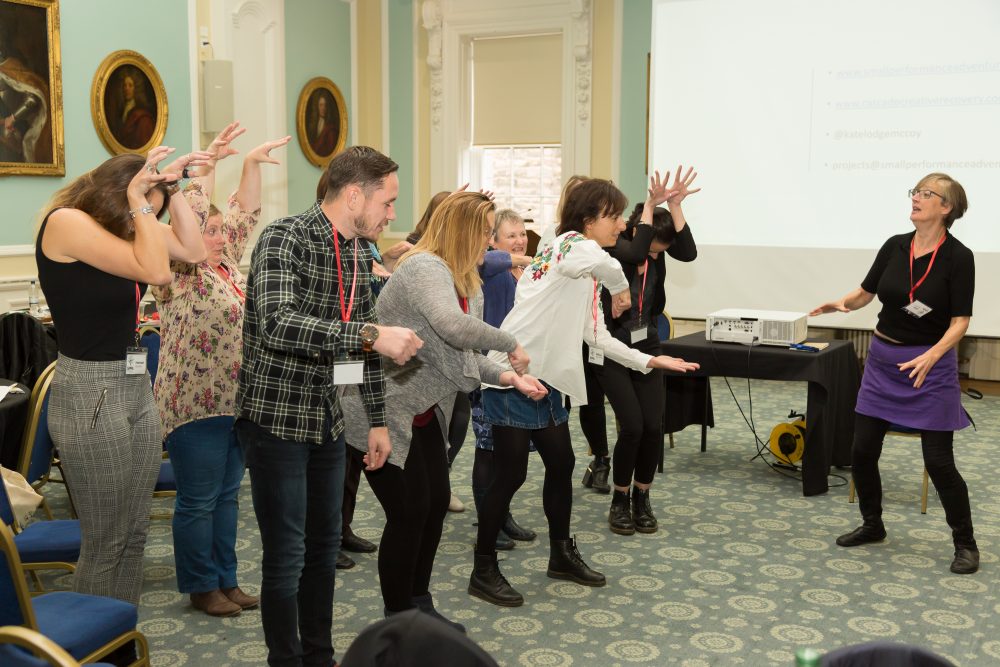
with Kate McCoy & Nou Ra
We shared some creative methods used in work with people in addiction recovery to create a performance about the mundane act of washing up, connecting and collaborating equitably. We asked about people’s domestic tea-towel situation, debated whether it is best to use a sink or a bowl and described our emotional wellbeing through the metaphor of washing up implements. We asked people to reflect on how our work fits with social pedagogy and responses discussed head, heart and hands and the common third. We are touring the show in 2019 and taking bookings for creative workshops. Nou says “I was aware of how supportive everyone was, open to the ridiculous and whimsy of it all, breaking through boundaries of awkwardness. The word authentic was used a lot throughout the day, in the most authentic way I have ever heard it.”
We would love to hear from you: www.smallperformanceadventures.com @katelodgemccoy projects@smallperformanceadventures.com
| The ‘how’ versus the ‘what’ we do in social pedagogical settings |
|

With Joerg Schlueter & Mathias Loureiro-Prati
In our Workshop we demonstrated the differences between working in a classical and hierarchical environment on the one hand and working in an evolutionary, more self-managed and less hierarchical environment on the other. An experiential business game allowed for the direct experience of both working environments to be ‘felt’. The subsequent reflection and processing of the experiences within the group was underpinned with theoretical background of Frederic Laloux’s ‘Reinventing Organisations’, as a basis for our workshop. The discussion included: how does information flow in an organisation? How is it the organisation structured? Who is involved in which decisions? And, how does our way of working at an organisational level impact our direct work with clients?
We thoroughly enjoyed the inspiring and invigorating discussion with the participants and the interest shown in this subject.
| Social Pedagogy and the Camphill approach in adult communities |
|
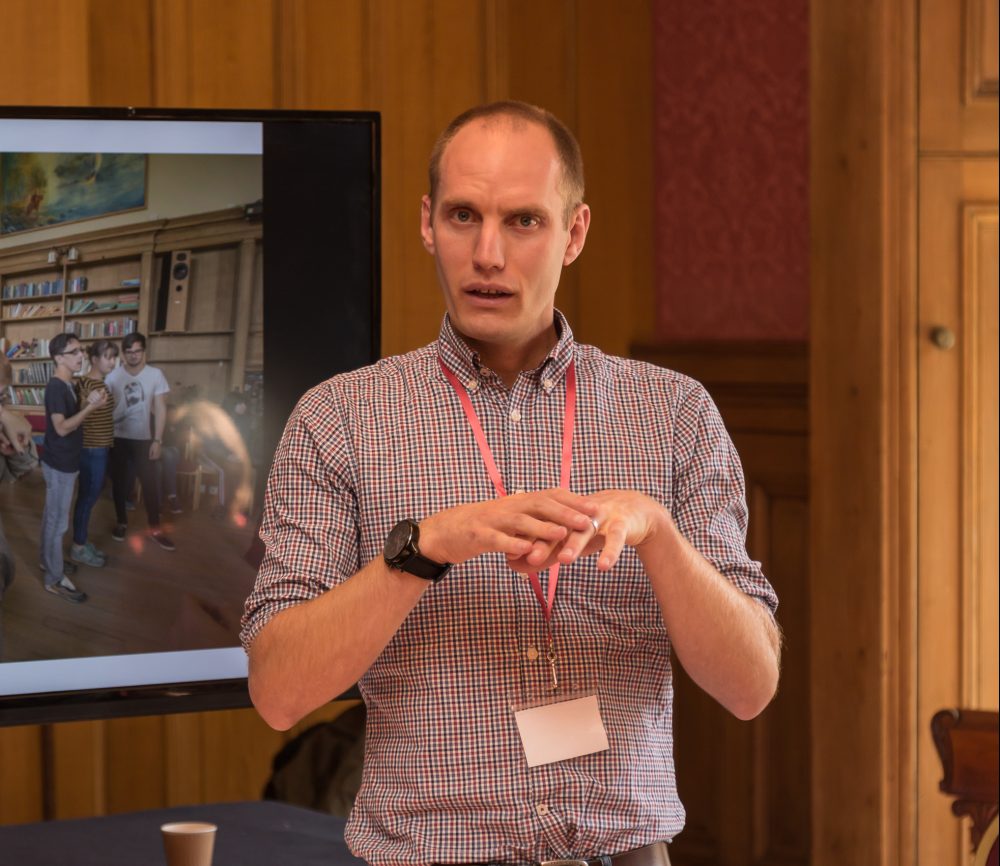
With Andrew Plant, Martin Alfred and Sandra Sabiston
The team focused on how the principles and values of social pedagogy underpin practice in their respective communities.
Sandra focused on “The Diamond Model” and how it aligns very closely to Camphill’s pre-existing philosophies. She spoke of the importance of authentic relationships with the emphasis on equality with Camphill being communities of equals whose motto is “Living, Working, Growing Together”. She went on to describe how “The Common Third” is used routinely in her community, giving the Michaelmas festival as an example in practice.
Martin spoke of his work with young adults and the significance of the 3 P’s in building authentic relationships, giving practical examples of how he uses this model. He spoke of the importance of interdependence in life sharing, and how the common third is routinely used in day to day home life. Supporting individual choice and personal development through “risk benefit” was also discussed.
Andrew focused on the significance of meaningful work in Camphill communities with reference to the Head, Hearts, Hands model to inform practice. Providing meaningful work, where individuals can make a contribution is essential, Andrew said, not only for the operations of a community, but for the feelings of self-worth and value it instils in the people involved. Again, he related this to “The Common Third” giving examples of how farming creates opportunities for people to work together.
| How can Nonviolent Communication (NVC) support our work as Social Pedagogues across the life course? |
|
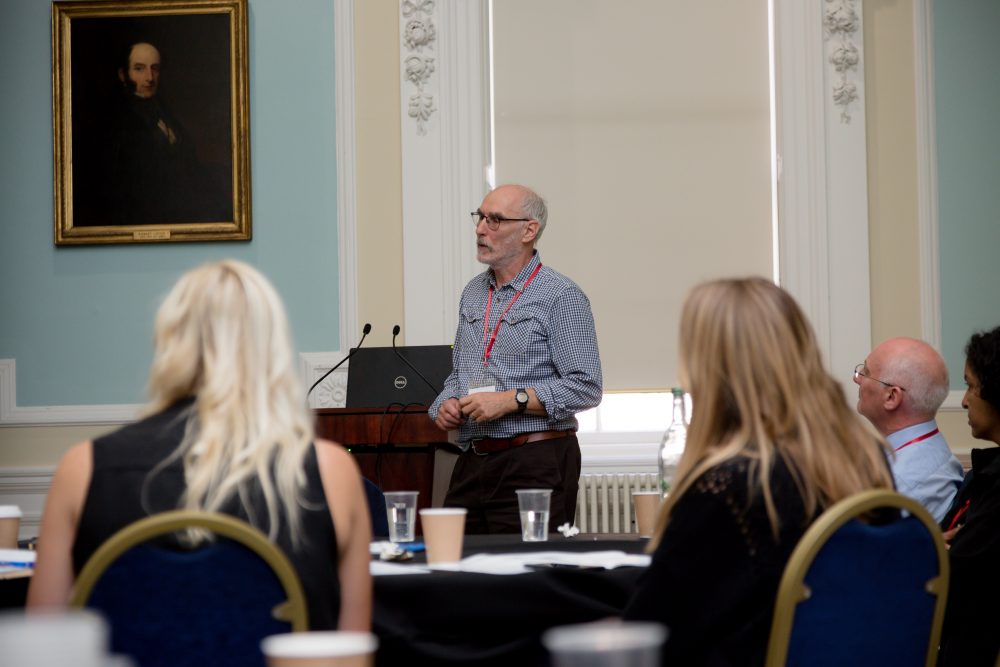
With Laurence Alfred
The workshop attempted to support participants to develop the inner qualities needed to live their life in in a non-violent way thereby supporting the development of positive strength based relationships. The workshop explored, through practice both individually and in groups, how to develop the inner peace required for authentic empathetic relational work.
We pondered on how to work emphatically with others and ourselves, and were challenged to observe situations without jumping to judgements or spontaneous evaluations. We touched on understanding that we need to own our feelings and that they are related to our unmet needs which we need to become more aware of; no-one can force us the feel in a particular way – we always have a choice how we respond.
The workshop led us love and the suggestion that ‘All we need is love’ for nonviolent conversation.
Laurence Alfred (lm.v.alfred@gmail.com)
| Social Pedagogy in work with older people |
|

With Prof. Pat Petrie & Thure Johansen
On this fine day in Edinburgh, we ran a workshop in which we had planned to describe the steps we had taken in the past year with Workers Education Association (WEA) and Leicester Ageing Together (LAT) to explore the role and potential of social pedagogy in the work with older people.
We had approximately 10 participants and, initially, we did a round of introductions in which we asked: What is your name, what do you do, and what would you like to be when you grow up? Apart from introduction and a little ice-breaking, it was our hope that the question might help provoke some thought about the concept of age, and it led to a discussion about what ‘old’ means, connotations and how this can link to unhelpful assumptions around a lack of appetite and need to consider lifelong learning an important part of a person’s lifeworld.
We then outlined the project in Leicester, what had brought the group of stakeholders together and how the session on 26th April in Leicester had been planned and delivered in collaboration, and that feedback had been very good and prompted another step ahead (see bottom).
From here, Pat, used 5 quotes on our powerpoints, statements from different academic and policy sources, to help establish the ‘direction of thought’ in this area, and that behind the human value most people observe social pedagogy as having (reason enough to consider it in any human context) there are helpful indicators to suggest now is a good time to consider the potential of ‘scaling out’ social pedagogy as far as policy and funding is concerned.
This prompted an open conversation about the role social pedagogy could have in communities, with examples given from a great group of participants about their experiences from home communities, own families, and through work experiences. National and international references were made, and the open conversation included topics like town planning, inter-generational communities, support with physical activities, and dementia villages abroad.
Thure then ran through a series of facts from National Statistics and the National Records of Scotland about older people. The intention was to explore the need, and exemplify what the post-60 population across England, Scotland and Wales consider their main challenges in life.
Pat and Thure then talked through outcomes from the session and asked the group for their advice and reflections about where and how they could see social pedagogy creating an impact.
The group discussion lasted the remaining 20 minutes of the session and, as shown above, helpful new points were put on the radar for Pat and Thure to take into consideration with colleagues before the Social Pedagogy with Older People – 2-day Orientation Course in early December hosted by WEA and Treehouse Associates.
Pat and Thure thanked everyone and invited them to join the ongoing discussions in this area.
| Social Pedagogy within the Family Learning Intervention Programme (FLIP) at Hackney Council |
|
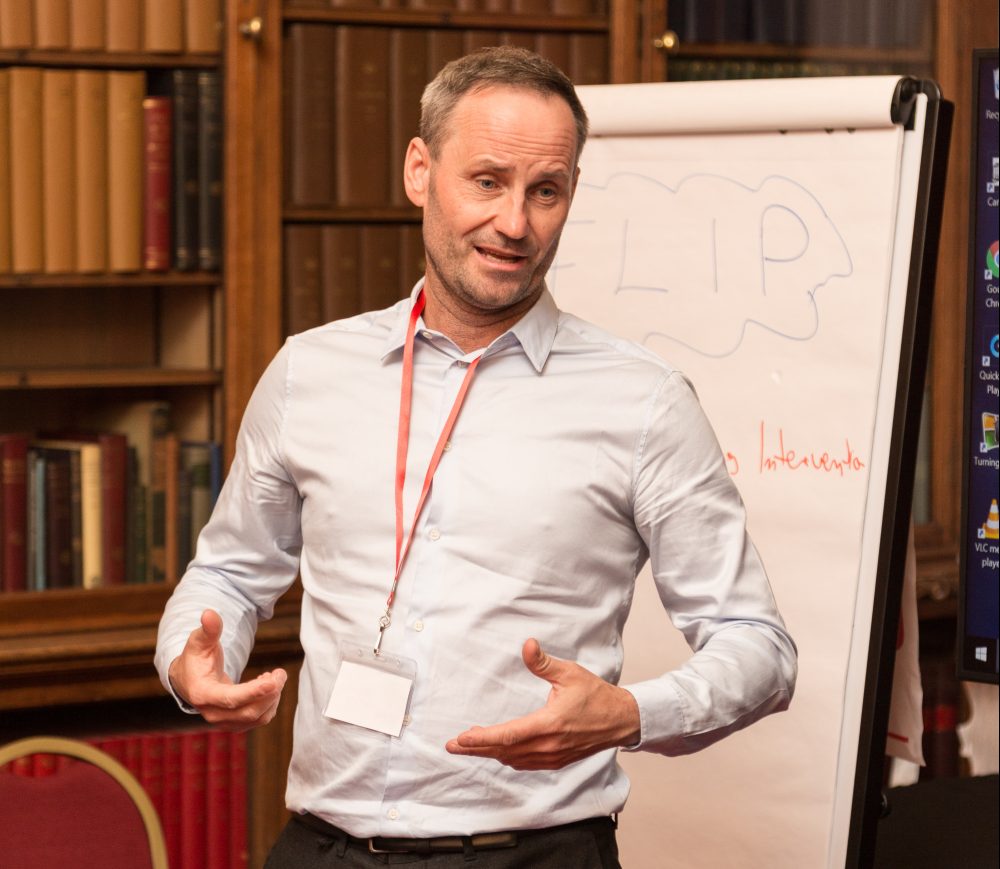
With Robert Koglek
Robert Koglek (Hackney Council) opened up the workshop by introducing the model, the theory of change and feedback and outcomes of this programme that has been operational since 2016. FLIP works with families where children are risk of coming into the care system or placement breakdowns and their social workers and other professionals. Families and professionals come for a short break away from Hackney in a beautiful rural area where they are supported in strengthening their relationships, addressing some of their difficulties and learn about and develop themselves and their family cultures.
| Building and sustaining relationships using a social pedagogic model |
|
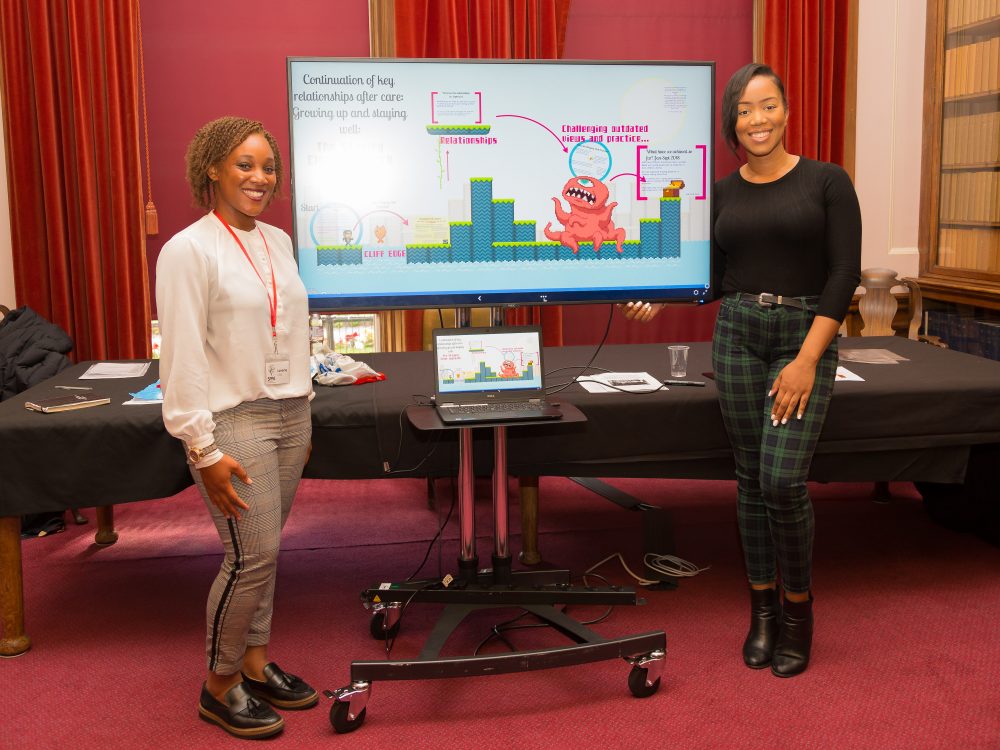
With Laverne Cole & Amaka Williams
This workshop explored how the theory of the 3 P’s supports staff in residential children’s homes to build trusting, sustainable relationships with young people that will last into the future once a young person has left care.
St Christopher’s provides residential homes for young people in care. One of these homes, Safe Steps, offers specialist support for girls at risk of child sexual exploitation and other community threats. Staff develop relationships with young people, some of whom have never had close relationships before in their lives.
Once relationships are established, St Christopher’s prepares young people to transition to independence. Our Staying Close pilot, launched with Department for Education funding, supports care leavers to keep in touch with the people they are closest to. This means that when times are hard or when they want to celebrate the good things, important relationships are still intact and their support network is ready and waiting. By thinking about the 3 P’s, staff can ensure these relationships are genuine, even once the professional working relationship is over.
We used visual creative methods and experiential activities to engage the audience.
See how we support young people at risk through a social pedagogic model here: http://www.itv.com/news/2018-02-25/county-lines-crime-targeted-in-new-government-13-million-scheme/




